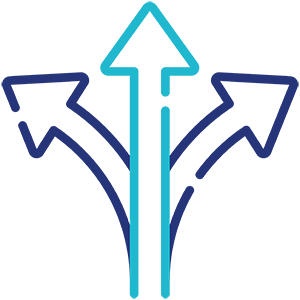Training Design and Delivery
work package 6
Focus
The primary goal of the work package is designing and delivering training programmes to empower trade unions’ reps, family associations’ and employers in the sector reps – who will be the target group (TG) of the training – with knowledge and skills on effective strategies to recognize vulnerabilities of care workers and to improve job quality and contrast discrimination in the care sector.
Task
Task 6.1 Analysis of training needs
This stage of the project is critical, because it ensures that the subsequent activities are based on a reliable training needs assessment, rather than assumptions (D6.1). The primary function of the analytical activities is to inform the subsequent actions, ensuring maximum practical benefits and impact for the target groups.
Task 6.1.1 Survey on TG needs (quantitative research)
Free Google Drive functions will be used in order to structure questionnaire forms online, in which insert multiple choices and/or open-answers questions. This will allow: the easy reach of the survey by recipients, the anonymous, homogenous and free collection data; the centralization of the responses recording process and the easy sharing of results among partners.
Task 6.1.2 Interviews on TG needs (qualitative research)
30 semi-structured interviews (roughly 5 for each country involved) will be conducted in order to further investigate TG needs emerged through the survey. Quantitative research will be conducted by disseminating the online form of the questionnaire. Likewise, interviewees will be selected by each national partner among representatives of trade unions and families’ associations engaged in the project at the national level.
Task 6.2 Design of training curriculum
Data collected through qualitative/quantitative methods will be used as a baseline to develop the training curriculum (D6.2). The content of the training programme will be designed based on the core principle of the blended learning approach and will be developed by the partners building also on the findings of research activities conducted in WPs 2, 3, 4 and 5. Some modules of the curriculum will be identical in all countries to ensure conceptual clarity and consistent approach, but there will also be some room for country-specific parts.
Task 6.3 Training delivery
Six (6) two-days (at least) face-to-face training courses (one for each country), provided through co-teaching (carried out by combined experts based on the covered topics and related skills required). This, thanks to different and intertwined points of view, will allow learning not only based on single topics but also in a multidisciplinary, complementary and integrated way. Training will be open to approxametely 20/30 trainees per country. Gender and nationality balance will be ensured if possible. In case of higher number of requests, selection criteria will be identified.
Task 6.4. Follow up and revision of the training programme
An evaluation of the skills acquired by the participants will be carried out. It will also be distributed to participants a questionnaire to detect the satisfaction of the service. The WP leader will examine the results in order to perform an assessment on the effectiveness of the training course rendered, in order to revise the training course model and materials to make the training curriculum replicable and transferable also to countries other than those involved in the Consortium.
Expected outcomes

D6.1. Assessment report of training needs

D6.2. Training curricula and calendar

D6.3. Assessment report of training provided

D6.4. Transferable training programme template
Who’s in first line
RU is lead partner for WP6, in charge of carrying out all the activities for the development, delivery and assessment of the training programme as outlined in detail below. Other national academic partners, EFFE and EFSI will facilitate at the national level the dissemination of the questionnaire and the conduction of the interviews (Tasks 6.1.1 and Tasks 6.1.2), adjust to the national framework the training curriculum (Task 6.2), provide logistic support for the delivery of the training (Task 6.3).

